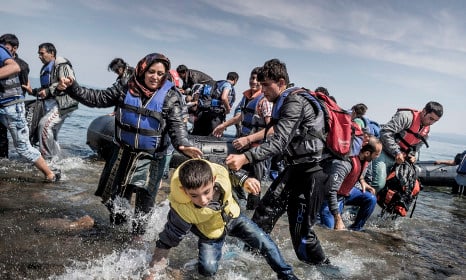So far this year the Swedish Migration Board registered 804 incidents, of which 516 occurred at places where asylum seekers often have to share the room with people of a different nationality. Other incidents have occurred at meetings with agency personnel. The incidents relate not only to threats and violence, but also to vandalism, arson and attempted suicide.
“It's a very volatile situation,” Monica Karum Bergvall of the Swedish Migration Board. “There are long delays and overcrowding. Many people feel bad and feel a great deal of frustration. Then they may become intimidating to our officers or other residents.”
“There may also be unreported events that occur when we do not have staff in place. We do not have around-the-clock staffing,” says Bergvall told Dagens Nyheter.
Solvig Ekblad, professor of multicultural health services research at the Karolinska Institute, says that many asylum-seekers can experience powerlessness during the asylum process and that it is not surprising that many react.
“These people need structure and activities during the day in order to try to normalize life as much as possible.”
As The Local reported earlier this year, asylum seekers arriving in Sweden are likely to face a wait of up to six months before they can have their case heard, as migration officers struggle to cope with the workload.
“The processing times are pretty long compared to Germany, which has a fast-track lane, and integration in Sweden. It is difficult to get housing and jobs; this affects people's choice of destination country,” Anders Danielsson, head of the Swedish Migration Board said in July.


 Please whitelist us to continue reading.
Please whitelist us to continue reading.